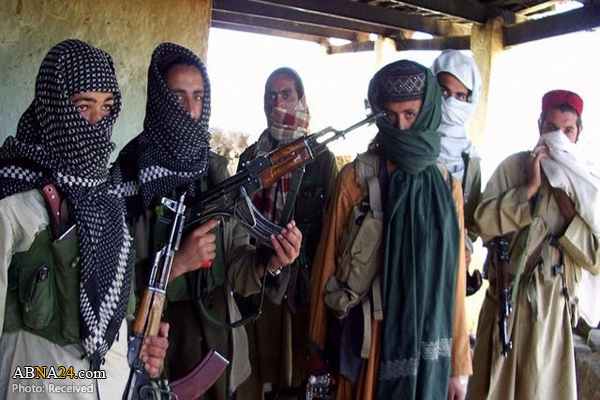AhlulBayt News Agency (ABNA): The Taliban militant group has rejected a call by the Afghan government for formal peace talks next month in Saudi Arabia.
Speaking on condition of anonymity, a Taliban leader announced on Sunday that the group’s representatives would meet US officials in the Saudi Arabian port city of Jeddah for the fifth round of talks within the next few days but not the representatives of the Afghan government.
“We will meet the US officials in Saudi Arabia in January next year and we will start our talks that remained incomplete in Abu Dhabi,” the Taliban leader told Reuters. “However, we have made it clear to all the stakeholders that we will not talk to the Afghan government.”
Taliban spokesman Zabihullah Mujahid also said the leaders of the group would not talk to the Afghan government.
Representatives from the Taliban, the US, and regional countries met for the fourth time earlier this month in the Emirati capital of Abu Dhabi for talks to end the 17-year war in Afghanistan, but the militant group’s representatives refused to talk to the Afghan negotiating team.
This is while the government of President Ashraf Ghani says the talks should be “Afghan-led and Afghan-owned,” insisting on continued efforts to establish a direct line of diplomatic communication with the Taliban.
The office of Afghanistan’s Chief Executive Abdullah Abdullah said Kabul was aware of the whole process of peace talks and that Washington sought to provide the condition for direct talks between government and the militant group.
US special envoy for Afghanistan Zalmay Khalilzad has said he held “productive” meetings in Abu Dhabi with Afghan and international partners “to promote intra-Afghan dialog towards ending the conflict.”
The Taliban’s five-year rule over at least three quarters of Afghanistan came to an end with a US-led invasion in 2001; but 17 years on, the militant group continues to be active on much of Afghan soil. The Taliban have strengthened their grip over the past three years, with the government in Kabul controlling just 56 percent of the country, down from 72 percent in 2015, a recent US government report showed.
Having failed to end the militancy campaign, Washington has over the past months stepped up its political efforts to secure a truce with Taliban.
US President Donald Trump has reportedly ordered the withdrawal of some 7,000 troops from Afghanistan. The figure accounts for about half of the total number of American boots on the ground in the country.
But a later White House announcement has cast doubt on reports about Trump’s order.
The Taliban have not formally responded to the partial US troop withdrawal. But a senior commander recently told media outlets that the group was “more than happy.”
30 December 2018 - 13:42
News ID: 922790

The Taliban have rejected Kabul’s offer of talks next month in Saudi Arabia where the militants, fighting to restore strict Islamic law in Afghanistan, will meet US officials to further peace efforts, a Taliban leader said on Sunday.




